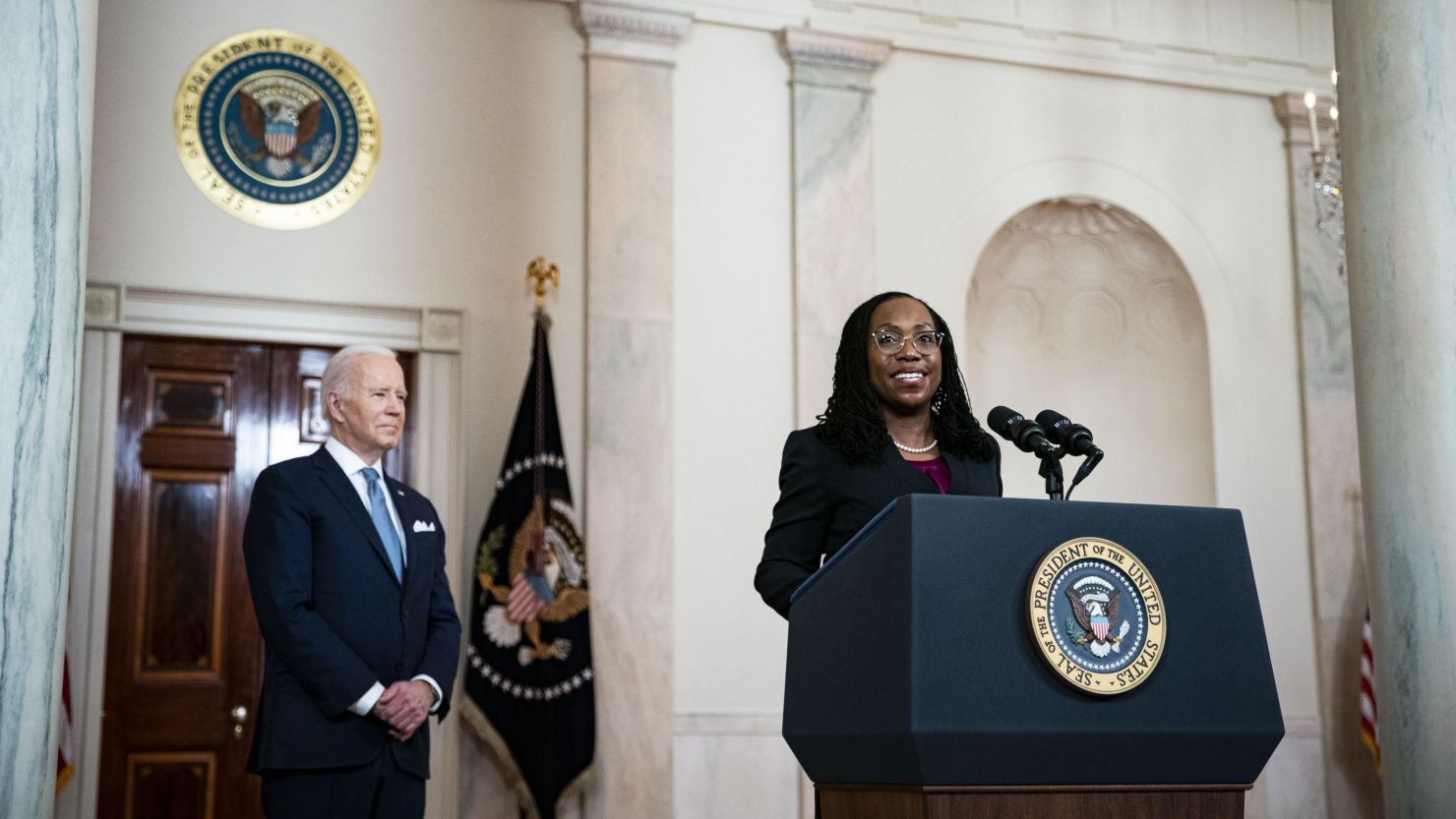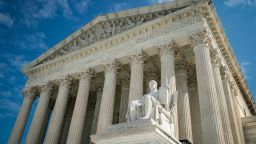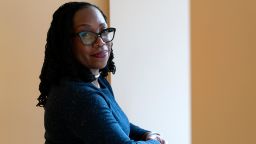President Joe Biden has followed through on his promise to nominate a Black woman to the US Supreme Court – and his pick has garnered much praise not only for what and whom she represents but also for what she might achieve.
On Friday, Biden announced Ketanji Brown Jackson – currently on DC’s federal appellate court – as his nominee to replace retiring Justice Stephen Breyer, kicking off a confirmation process that could install a Black woman on the high court for the first time in US history.
“For too long, our government, our courts haven’t looked like America,” the President said at the White House as he introduced Jackson. “I believe it’s time that we have a court reflect the full talents and greatness of our nation with a nominee of extraordinary qualifications, and that we inspire all young people to believe that they can one day serve their country at the highest level.”
Indeed, the symbolic value of Jackson’s nomination couldn’t be clearer.
“It’s so important to have this breakthrough appointment of an African American woman who’s so well qualified to the post because her appointment will affirm the values of the Civil Rights Act of 1964,” Tomiko Brown-Nagin, the dean of the Radcliffe Institute for Advanced Study at Harvard University, told CNN. “Equal workplace opportunity regardless of race and sex and background – that’s something to be very happy about.”
Brown-Nagin also fit Jackson into a much broader history of firsts.
“Jackson is standing on the shoulders of Constance Baker Motley, the first Black woman appointed to the federal bench, and a host of figures who, through their work, sought to make equal protection mean something in the workplace,” Brown-Nagin added. “Jackson will be an inspiration to lots of little girls and African Americans who might be inspired to enter the legal profession.”
Del. Eleanor Holmes Norton, DC’s nonvoting US House member, recommended in 2012 to President Barack Obama that he nominate Jackson to the US District Court for the District of Columbia. Obama listened to Norton, and helped set Jackson up for this moment a decade later. Norton emphasized that injecting more diversity into the judiciary would heighten its legitimacy in some Americans’ eyes.
“(Jackson’s) visibility to the country as a Black woman would result in greater faith in the judicial system itself,” Norton said.
Crucially, if Jackson is confirmed, her significance will extend far beyond symbols, even if she won’t fundamentally change the balance of the court.
Born in Washington, DC, and raised in the Miami area, Jackson previously clerked for Breyer and served as a public defender in the nation’s capital. Further, she was a vice chair of the US Sentencing Commission for four years; during that period, the agency reduced the sentences for a number of prisoners in order to address the deep inequality of past drug policy.
“We need a voice on the Supreme Court that can weigh in on opinions from the perspective of those who’ve been deeply marginalized,” Black Voters Matter co-founder LaTosha Brown told CNN. “And I think to be a public defender … she chose to do that. She didn’t have to do that. That (choice) says something to me about her awareness that every single person deserves to have access to justice.”
Jackson’s nomination comes during a political season in which the US Supreme Court and the Republican Party are curtailing broad access to the ballot box via court rulings and bills that disproportionately disadvantage voters of color. According to Brown, Jackson may be just the person needed to meet the challenges of the current democratic crisis, given her lived experiences and record of progressive pragmatism.
Brown nodded to 2013’s Shelby County v. Holder and 2021’s Brnovich v. Democratic National Committee, two cases that, together, essentially defanged the Voting Rights Act of 1965.
“If there’s any moment that we needed (this pick), that is now, when we’re seeing that the Supreme Court in many ways has been decimating, undermining and gutting the Voting Rights Act,” she said.
Brown-Nagin also underscored the magnitude of Jackson’s public defender background.
“She has vast and relevant legal experience, including in the criminal legal system. If she’s confirmed to the court, there will be for the first time since Thurgood Marshall a justice with significant experience representing criminal defendants,” Brown-Nagin said, pointing to the late justice who served as the first Black person on the Supreme Court. “Ultimately, public defenders, which is the role that Jackson played for a couple of years, are an integral part of our legal system, ensuring due process and right to counsel for defendants protected by the Bill of Rights to the Constitution.”
In the weeks ahead, Jackson will have to run the gantlet in a fiercely charged political environment. Already, many Republicans are signaling their opposition to Biden’s nominee. And yet whatever flimsy case they try to build against Jackson, it’s beyond dispute that she possesses the kinds of experiences that are essential to have represented on the country’s highest court.





